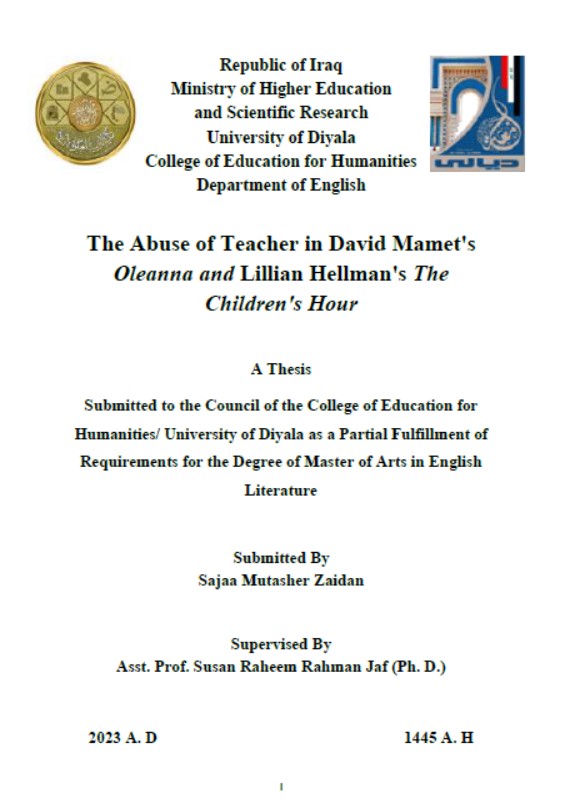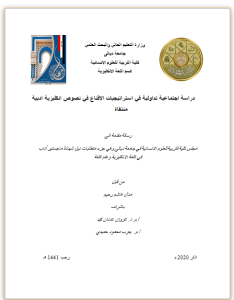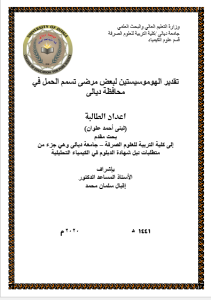Abstract
Persecution is the systematic abuse by one person or group of people against another. The most common forms of persecution are religious, racial and political one, although there is some overlap between these terms. Many factors lead to persecution and can ruin the lives of the persecuted by causing harassment, imprisonment, arrest, fear or suffering. Moreover, the persecuted is considered oppressed socially, politically, and culturally, and this may lead to taking an incorrect action or judgment against the persecutor person and cause destruction of his being, life, reputation, and future.
The current thesis attempts to analyze abuse, depicted in David Mamet’s Oleanna (1992) and Lillian Hellman’s The Children’s Hour (1934), respectively, analysing them depending on Socrates’ ethical theory. Socrates’ theory of ethics is a preeminent moral theory that can be used as an analytical tool to analyze the social and cultural factors that some people may be offended by engaging in deviant behavior that causes harm to others. The oppression of the main characters is analyzed to show how this is done.
Both writers show the teacher as a person who is oppressed by others, which is represented by, professor John who is accused of sexual harassment in David Mamet’s Oleanna, and the two females teachers who were accused of lesbianism by their students in Lillian Hellman’s The Children’s Hour. Consequently, this thesis aims to analyze the personality of the teacher as a person who was wronged by his students and by the community despite his honesty and work with sincerity and respect to serving the society and its students, but they were rewarded with accusations and lies that led to the destruction of his life as well as his reputation.
The current thesis falls into four chapters. The first chapter is an Introduction which is subdivided into three sections. The first section provides introductory materials on teacher-student relationship. The second section examines literature review. The third section is Socrates’ ethical theory, its definition, aspects, and adaptations.
The second chapter entitled The Persecution and Manipulation in David Mamet’s Oleanna. It is subdivided into two sections, the first one deals with David Mamet’s life and writing career as a writer, while the second section provides critical analyzes of the manipulation and persecution of the teacher (Professor John) in Mamet’s Oleanna (1992). It also sheds much light on the false accusation against professor John that led to his injustice and its devastating consequences on his life and reputation in the light of ethical theory.
Chapter three is entitled betrayal and persecution in Lillian Hellman’s The Children’s Hour. It is subdivided into two sections. The first section provides full biographical details of Lillian Hellman’s life and her career as a woman writer. The second section provides a critical analysis of the devious methods and the betrayal that two of the teachers were subjected to in Lillian Hellman’s The Children’s Hour (1934) and the devastating consequences of such false accusation on their lives and reputation in the light of ethical theory.
Finally, chapter four is the conclusions, in which the researcher briefly explains the main points resulting from the thesis and recommendations.





